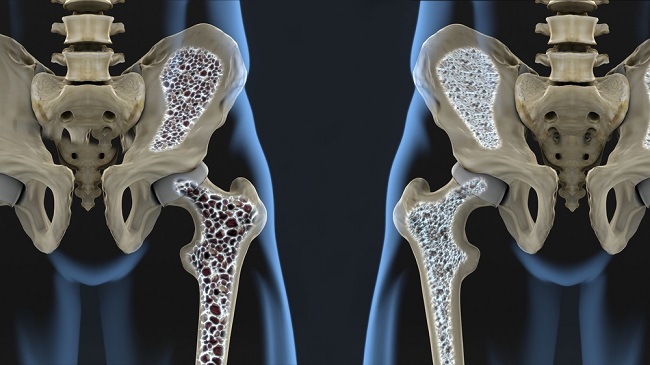An audiometric test is an examination carried out to evaluate the ability to hear and detect hearing problems early on. Hearing loss can affect anyone, from infants to adults to the elderly.
Hearing loss is a condition when a person cannot hear part or all of the sound through one or both ears. People with mild hearing loss may still be able to communicate well. However, severe hearing loss can lead to deafness. This certainly interferes with the quality of life of the sufferer and causes difficulties in communicating.

Causes and Symptoms of Hearing Loss
The following are some conditions or diseases that can cause hearing loss:
1. Conductive deafness
Conductive deafness occurs when sound cannot reach the eardrum and the ossicles in the middle ear. This type of hearing loss will make it difficult for you to hear soft or low sounds.
There are several things that can cause a person to experience conductive deafness, including:
- Ear infection
- Earwax buildup
- The entry of a foreign object into the ear
- Tumor or allergic reaction in the ear canal
- Too often getting in water, for example due to swimming or diving activities
2. Sensorineural deafness
Sensorineural hearing loss results from damage or disruption to the inner ear or to the auditory nerves in the ear and brain. This type of hearing loss is usually permanent.
Sensorineural deafness can make it difficult for the sufferer to hear sounds that are too low or too loud. This is because the sound waves that are caught by the ear cannot be processed by the auditory nerve and brain.
The following are some of the things that can cause sensorineural deafness:
- Congenital birth defects
- aging
- Long-term exposure to loud or loud noise
- Injury to the head
- Meniere's disease
- Acoustic neuroma
- Autoimmune disorders that damage the auditory nerve
3. Ear barotrauma
Barotrauma is a condition when the ear is injured or damaged due to changes in air pressure. People who experience ear barotrauma will usually feel a ringing or ringing in the ears. Barotrauma does not only occur in the ear, but also in the lungs and digestive tract.
Ear barotrauma often occurs in people who are at certain altitudes or depths, for example in mountains or highlands, in airplanes, or while diving.
When experiencing hearing loss, a person will also usually experience the following signs and symptoms:
- Often asks other people to repeat what they say
- Difficulty understanding the speech or words of the interlocutor or people around
- Headache
- Dizziness or vertigo
- Ears ringing
Sometimes, hearing loss also causes sufferers to often feel tired, stressed, and even withdraw from social circles.
As previously mentioned, hearing loss can be temporary or permanent and generally occurs gradually with age. However, hearing loss can sometimes occur suddenly.
If you experience any of the above symptoms, you should immediately consult an ENT doctor. The doctor will evaluate hearing function by conducting ear examinations and hearing tests, one of which is an audiometric test.
Hearing Test with Audiometric Test
Audiometric tests are performed using a machine called an audiometer to produce sounds with different volumes and frequencies. Not only to detect hearing loss, audiometric tests are also carried out as part of routine health checks (check-up).
The following are the stages of examination with an audiometric test:
Preparation phase
When the audiometric test is performed, you will be asked to sit in a special room. The examiner or audiologist will explain the procedure for the examination and what you need to do in the room. After that, the audiologist will install earphones in your ear.
Inspection stage
When the audiometric test begins, the audiologist will play various sounds, such as voice and speech, at different volumes, frequencies, and intervals to both ears. This aims to determine the range of hearing ability of each ear.
During the audiometry exam, the audiologist will give instructions, such as asking you to raise your hand or repeat what you hear. It aims to evaluate your ability to recognize words and distinguish speech sounds from surrounding sounds.
Test result analysis stage
After the test, the audiologist will review your test results. Through the results of these tests, the doctor can tell the cause of your hearing loss and the appropriate treatment steps to overcome it.
An audiometric test usually takes 40–60 minutes. This test does not require any special preparation in advance and does not pose any risks. During the examination, you only need to follow the instructions of the audiologist.
If you or your family experience some of the symptoms of hearing loss, you should immediately consult a doctor so that a hearing examination and tests (including audiometric tests) can be carried out to assess how well your hearing ability is.
If the test results show that you have hearing loss, your doctor may suggest that you use a hearing aid.









